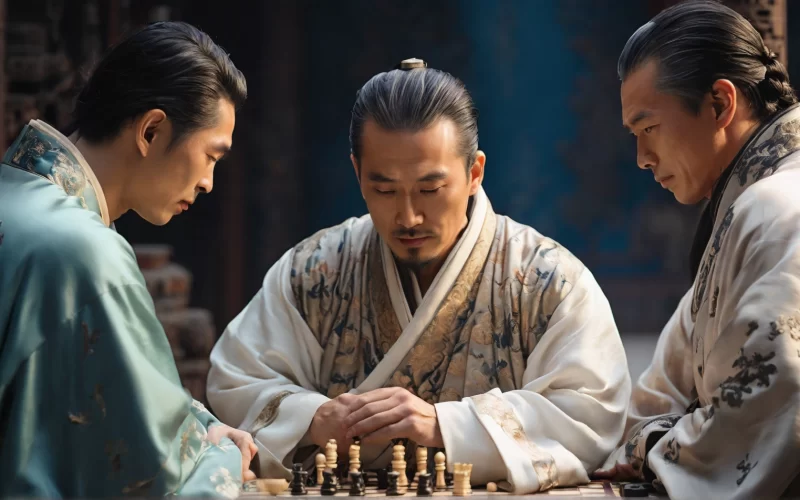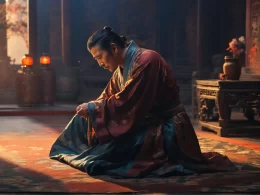Idiom Explanation:
The person on the spot is baffled, the onlooker sees clear. Originally, it means that people who play chess are often confused and cannot see the direction of development. Now it is used as a metaphor for the fact that the person concerned often thinks too much about what is at stake and is confused about what to do.
Pronunciation:
当局者迷,旁观者清
dāng jú zhě mí,páng guān zhě qīng
Origin:
后晋·刘昫《旧唐书·元行冲传》:“当局称迷,傍观见审,累朝铨定,故是周详,何所为疑,不为申列?”
Story:
Yuan Tantan of the Tang Dynasty was known by his character Xingchong (行冲). He had written thirty articles of the Wei Canon, which was held in high esteem by the scholars of his time.
On one occasion, Minister Wei Guang wrote to Emperor Xuanzong of Tang, requesting that the Classical Rites, which had been compiled and revised by Wei Zheng, the famous minister of the early Tang Dynasty, be listed as a scripture, that is, as a classical work of Confucianism. Emperor Xuanzong immediately agreed, and ordered Yuan Tan and others to proofread it carefully and add annotations so that it could be used.
Yuan Tan, together with Fan Xinggong, a doctor of the State Crown, and Shi Jingben, an assistant teacher of the Four Doors, compiled a list of fifty articles, added notes, and presented them to Emperor Xuanzong of the Tang Dynasty. Unexpectedly, the right prime minister, Zhang Shuo, took a different view on this. He said, "The present book of Rites was compiled by Dai Sheng of the Western Han Dynasty, and has been in use for nearly a thousand years. What's more, Zheng Xuan of the Eastern Han Dynasty had added commentaries to it and it had become a scripture. I am afraid that it would be inappropriate to use Wei Zheng's new text and add the commentary. Tang Xuanzong agreed with him. Feeling that he had a point, Emperor Xuanzong changed his mind. But Yuan Tantan was dissatisfied with this and wrote an essay to make his point and defend it. The title of the essay was called "Explaining the Doubts", and it used the form of a dialogue between a guest and a host. First, the guest asked the question: Which is better, the classic Book of Rites, the one compiled by Dai Sheng of the Western Han Dynasty and annotated by Zheng Xuan of the Eastern Han Dynasty, or the one processed and collated by Wei Zheng?
He replied: Dai Sheng compiled the Book of Rites, which was used at the end of the Han Dynasty, and was later revised and annotated by many people, and there were many contradictions among them. Wei Zheng thought that it was too long and complicated, so he rearranged it and removed the roughness and extracted the essence. Who would have thought that those who rigidly adhere to the chapters and sentences, stick to the old rules would oppose!
The guest nodded after hearing this and said, "The authorities claim to be confused, while the onlookers see the judgement." That is to say, it is like playing chess, the person who plays can't see clearly, but the onlooker can see very clearly. Later, people derived from this story that "the person inside is confused, but the onlooker sees clearly".












